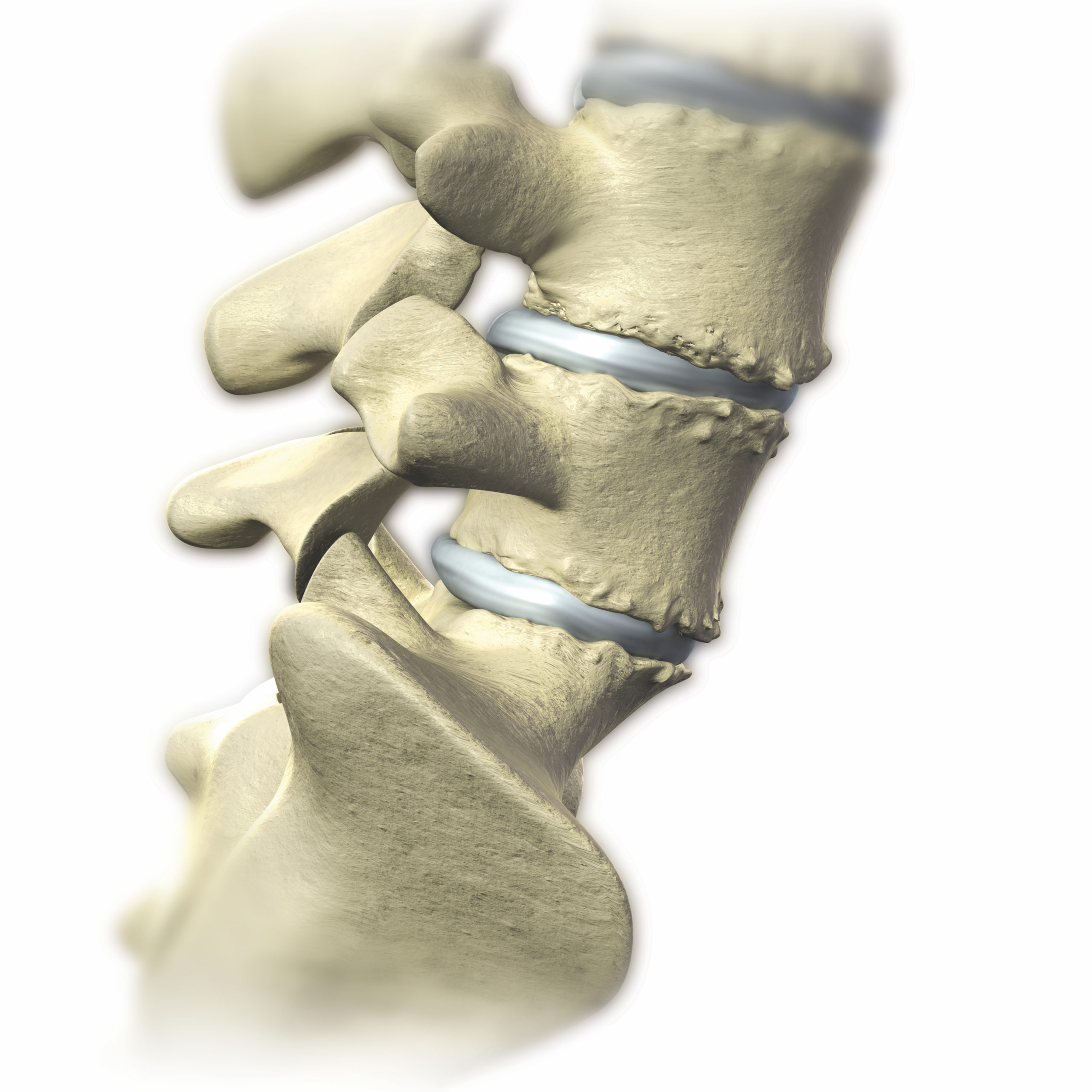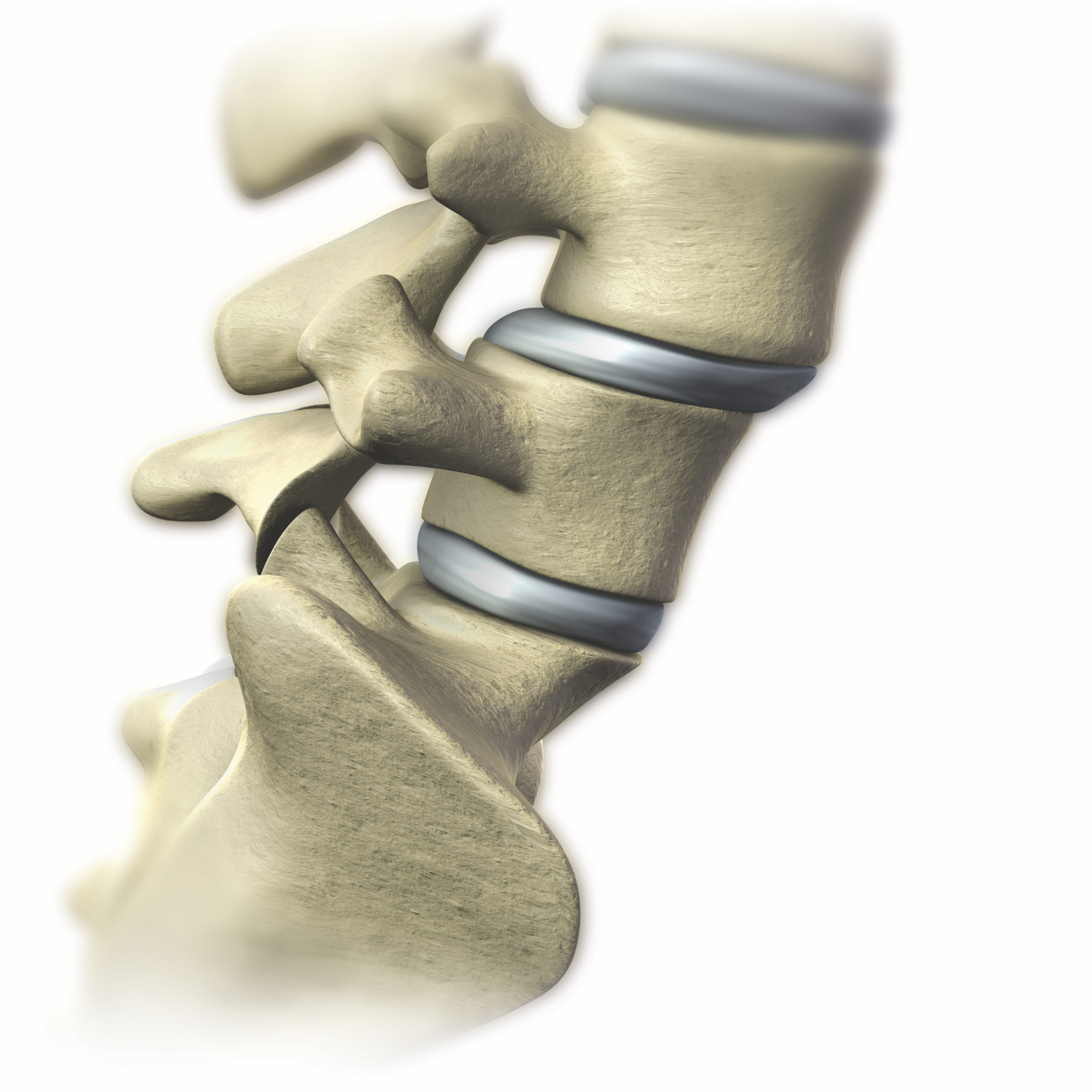Minuteman®
Back pain is usually caused by the natural degeneration of the spine as we age. Severe degeneration can cause weakness or instability of your spine, which can lead to debilitating pain in the lower back. These painful symptoms can also extend into your buttocks, legs or feet.
While back and/or leg pain are extremely common, the symptoms and severity of the pain vary greatly. Your pain may be dull, sharp, may be in one isolated area, or cover a broad area. Your back pain may include shooting pain, numbness, tingling, and muscle weakness in the legs and feet. Pain that travels to the legs and feet is commonly due to the degenerative process that causes nerves around the spine to become pinched.
Spinal degeneration is a condition characterized by gradual wear and tear to the discs, joints, and bones of the spine. The cause of spinal degeneration is simple overuse or aging. As you age, the degenerative changes to your spine may include decreased disc height, instability, loss of joint cartilage, bone spurs (osteophytes), and thickened ligaments and bones. Spinal degeneration can lead to instability in the spine. This is when one vertebra slips forward over another vertebra, causing pain, also known as spondylolithesis. Arthritis is also a form of spinal degeneration. Due to a loss of joint cartilage, bone spurs and thickened ligaments can develop and cause narrowing of the spinal canal. As a result, the spinal nerve roots may become pinched and cause pain that radiates down the leg.

Degenerative Disc Disease

Spondylolisthesis
Identifying your symptoms, along with accurate diagnosis of the underlying causes of the pain, is the first step to obtaining effective pain relief.
If you suffer from chronic back or leg pain, and have not found relief from conservative treatments, Dr. Stephens may recommend a minimally invasive spinal fusion. The following questions will help determine if the Minuteman® System is right for you.
- Does your back or leg pain worsen with prolonged standing or walking?
- Does your back or leg pain improve while you are sitting?
- Does leaning forward improve your pain?
If you answered “yes” to any of these questions, you may be a candidate for implantation of the Minuteman®. The Minuteman® offers a less invasive alternative to traditional fusion procedures. When it comes to stabilizing the spine, the Minuteman® has been shown to be comparable to screws and rods. This helps alleviate symptoms of back and leg pain. For people who are not able to physically handle a more traditional fusion or long recovery, the Minuteman® may be a particularly good option.
It is important to talk to Dr. Stephens about the best way to treat your back and/or leg pain. He will decide if minimally invasive spine surgery is the right choice for your condition. The Minuteman® is intended for plate fixation/attachment to spinous processes for the purpose of achieving supplemental fusion in the following conditions: Degenerative Disc Disease, Spondylolisthesis, Trauma, and Tumor.
The Procedure
During the procedure, a 1-inch incision is made on the side of your body, dilation is used to access the spine, and the Minuteman® is implanted with bone graft. The advantages of this approach are that it does not require dissection or retraction of the sensitive back muscles, bones, or nerves. This may lead to a shorter operative time, less blood loss, reduced hospital stay, and a faster recovery time. Watch our animation below.
